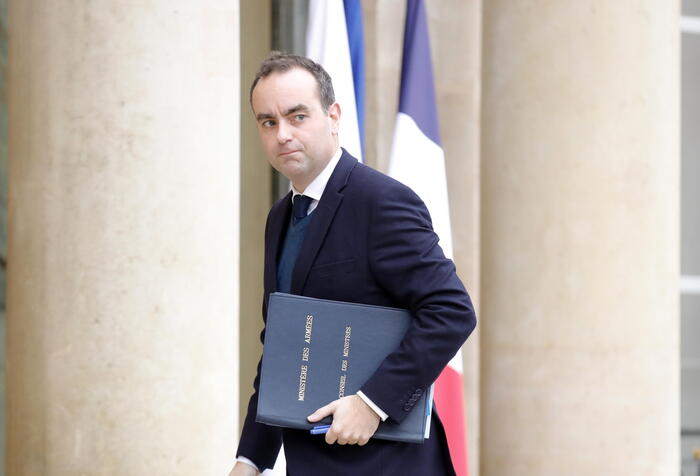A decisive week of talks between Russians and Americans has started in Geneva, amid fears of an invasion of Ukraine by Moscow.
The deputy foreign ministers of the two rival powers, the American Wendy Sherman and the Russian Sergei Riabkov are meeting on Monday, before a NATO-Russia meeting on Wednesday in Brussels.
Despite growing aggressiveness in speeches in recent months, the negotiations that actually begin today have a real chance of success.
Ukraine: the trigger for the crisis
Antony Blinken, the head of American diplomacy, confirmed it: for the United States, "the hot topic" of this week will be "the aggression of Russia against Ukraine". The West and Kiev accuse the Russians of having massed nearly 100,000 soldiers on the Ukrainian border with a view to a potential invasion. At Christmas, new satellite images, made public by a private American company, showed that reinforcements and in particular "a new unit, made up of several hundred armored vehicles", had joined the troops already stationed at the Ukrainian border. "We must prepare that Russia, once again, chooses to use armed force, chooses confrontation rather than cooperation", warned again on Monday, NATO Secretary General Jens Stoltenberg .
NATO at the heart of the crisis
But does Russia really covet Ukraine?
In reality, Russia feels threatened by the expansion of the North Atlantic Treaty Organization (NATO) to its borders.
The Kremlin's demands in this crisis, unveiled on December 17, have confirmed this.
Russia wants the United States to give up establishing military bases in all the countries of the former USSR that are not members of NATO, to use the infrastructures there "for any military activity" and even to "develop cooperation. bilateral military ”with these states.
"This has been a constant concern of the Russians for almost 20 years," confirms Jean de Gliniasty, former French Ambassador to Russia, director of research at IRIS and author of the book "A Little History of Franco-Russian Relations "(The inventory).
"The Russians have the impression that time is on their side: NATO and Ukraine have recently signed a number of partnerships, particularly military ones and above all, the anti-Russian discourse is crystallizing in this country", he explains. .
The risk of a conflict not excluded
With nearly 100,000 Russian soldiers and around 125,000 Ukrainian soldiers stationed a few kilometers from each other, on the border of the two countries, the risk of an escalation leading to conflict cannot be ruled out according to the researcher.
"In the Donbass (Editor's note, a region in the east of Ukraine where pro-Russian separatists have been opposing the Ukrainian forces since 2014) on the side of the pro-Russian as well as that of the Ukrainians, there are ultranationalists who hope for war," recalls he does.
Read also Does Russia have the means to invade Ukraine?
But if the conflict breaks out, it will be, according to him, more the consequence of an accident than of a diplomatic decision of one of the two camps.
"Neither Washington nor Moscow really want to engage in this war," he said.
Can we hope for an agreement?
The aggressive rhetoric of the two camps as well as their declared will not to make any concessions, however, leaves little hope for a diplomatic exit from the crisis in the short term. If Antony Blinken urges Russia to choose this "path of dialogue" while maintaining the pressure, Vladimir Poutine spares this little balancing act, contenting himself with threatening the West with a "military and technical" response in the event " keeping the line very clearly aggressive ”.
"These threats are normal and are part of the preliminaries of a good negotiation", considers however Jean de Gliniasty.
"The real discussions begin today and they have a chance to succeed because all the circumstances are met: the Americans do not want a conflict that would divert them from the main front against China and the Russians seem to have understood that they had lost Ukraine, ”he explains.
"The discussion was complicated, it could not be simple," admitted Sergei Riabkov, after a dinner with his counterpart Wendy Sherman on Sunday evening in Geneva.
Jens Stoltenberg, for his part, said it was "unrealistic" to expect the issues to be resolved by the end of the week.





